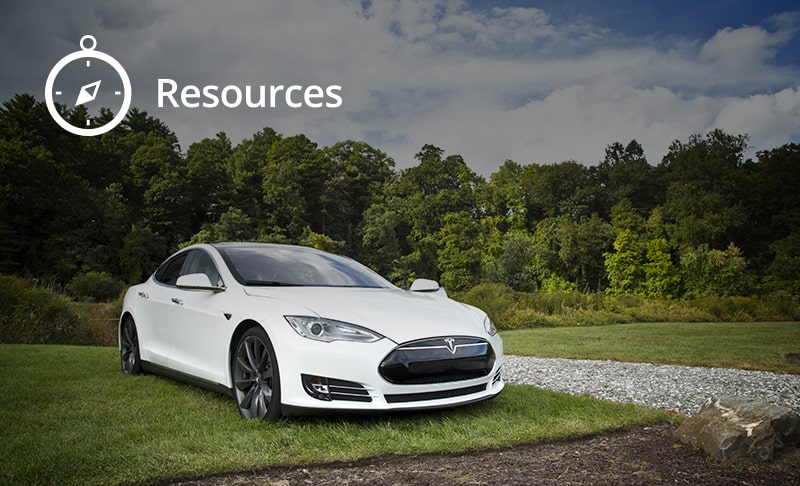
The Pros and Cons of Electric Cars
Electric cars are creating quite a buzz in the automotive industry. Efficient, high-tech, and better for the environment, electric vehicles (EVs) seem like the perfect answer to many of today’s urban driving issues. But where there are benefits, there can also be drawbacks.
Here is a list of the main pros and cons of electric cars:
- PRO: No More Paying for Gas
- PRO: Cheaper to Maintain
- PRO: Good for the Environment
- PRO: Commuter-Friendly
- CON: Higher Initial Investment
- CON: Range Anxiety
- CON: Lack of Charging Stations
- CON: Questionable Energy Sources
A Closer Look at the Pros and Cons of Electric Cars
PRO: No More Paying for Gas
The most obvious benefit to having an electric car? You’ll no longer be a slave to the gas pump. EVs can be conveniently charged in your own garage, meaning you’ll never again have to go out of your way to the gas station in the middle of an important errand. The cost per kilometre of running on electricity is significantly less than with gas, and anxiety over fluctuating fuel prices will miraculously become a thing of the past.
PRO: Cheaper to Maintain
No gasoline engine also means no more keeping track of when you last changed your oil, because there’s no oil in an electric car. You can even say goodbye to engine tuneups – rather than needing regular maintenance, EVs run on an electric motor, the battery of which can have a lifespan of up to 10 years. Just imagine going almost a decade without ever having to worry about car maintenance!
PRO: Good for the Environment
No more fossil fuel means no more emissions coming from your vehicle. This is clearly a huge step in a positive and sustainable direction, since right now almost a quarter of Canada’s greenhouse emissions are produced by the transportation sector. A move to more electric cars can only mean good things for the environment, right?
PRO: Commuter-Friendly
No more fossil fuel means no more emissions coming from your vehicle. This is clearly a huge step in a positive and sustainable direction, since right now almost a quarter of Canada’s greenhouse emissions are produced by the transportation sector. A move to more electric cars can only mean good things for the environment, right?
CON: Higher Initial Investment
Because they’re a newer, complex technology, you can expect to pay more at the outset when you purchase an electric car. In Canada, most baseline models begin around $30,000 and reach as high as $150,000 for the BMW i8. For comparison, a new gas-powered Ford Focus sedan starts at $16,648, while the electric Focus currently runs almost double this price at $31,998. There are used EVs on the market, but the higher price is also reflected on pre-owned models. There’s also the battery replacement to keep in mind. While these can from eight to 10 years (or approximately 150,000 km), an eventual replacement can run you from $5,000 to $8,000.
CON: Range Anxiety
While an EV can easily handle an average day’s travels within city limits, their weaknesses begin to show once you lose sight of the skyscrapers. Those who live in rural areas and/or have a regular long-distance commute often suffer from “range anxiety”, where they worry the charge will not hold for the duration of their trip. Although the Canadian government has committed to investing in more charging stations to encourage the adoption of electric cars, they’re still nowhere near as prolific as your average gas station. The same issue applies to long road trips: in an EV, you’ll have to make sure you’re mapping out your time between charging stations very carefully, to ensure you’re never stuck without power.
CON: Lack of Charging Stations
The issue of charging an EV also creates a significant barrier for a large portion of the population. Those who live in apartment blocks, condos, or who only have street parking will find it difficult to keep a full charge, as most EVs are best left plugged in overnight.
CON: Questionable Energy Sources
Actually, there are two sides to this coin. While investing in vehicles that don’t directly produce emissions is a positive step, there’s still the question of where the electricity to power them is coming from. If your juice is coming from an energy source that releases carbon emissions, such as coal or natural gas, the difference in environmental impact between an EV and a conventional car is greatly reduced. However, Canada is making strides away from carbon-emitting energy sources, with a plan to phase out coal power by 2030. Those who live in British Columbia, Manitoba, Ontario, and Quebec can breathe even easier, as these provinces have reached the impressive goal of only 20 tonnes of CO2 produced per gigawatt hour, thanks to hydro and nuclear power.
Final Thoughts on Electric Cars
In the final analysis, an EV won’t be the right choice for everyone. If you have the funds to weather the initial cost, and a convenient place to keep your car plugged, this new horizon in car technology might just be worth exploring. However, even if your lifestyle doesn’t currently lend itself to electric car ownership, there are lots of possibilities to look forward to, as this trend is only just beginning to gain momentum in the Canadian market. It’s very likely that one day, investing in an EV will be no more significant a choice than deciding between manual and automatic.

